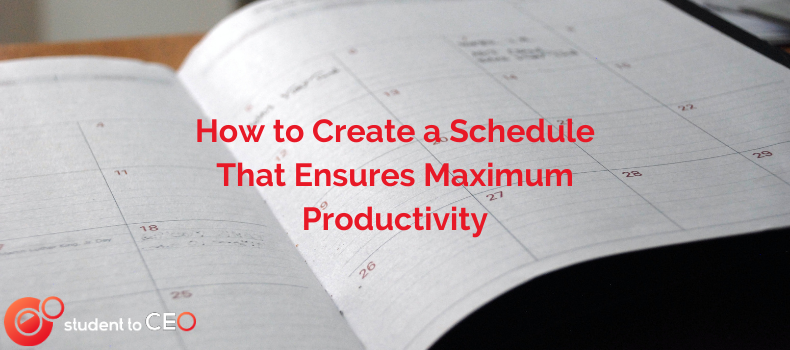When building a business, especially if you are a full-time student or have another job, capitalizing on available time that you have is crucial. If you already find yourself strapped for time, the time that you do have truthfully can’t be wasted.
So, how do you take the little time that you have and use it for maximum productivity? Follow the suggestions below.
SEE MORE: 5 Ways to Get More Done in Less Time
Reserve Meetings for Certain Days or Time Blocks
My biggest mistake when I was just starting my business was setting my Calendly calendar to let people book calls at pretty much any moment that I was available throughout the week. The reason why this was a big mistake was I eventually got to the point where it felt like all I was doing was speaking to people on the phone, which didn’t leave me much time to actually do work. To be fair, however, my booking calendar kind of had to be a little chaotic because half of my week was spent in school, and I did need to make sure I had time available to speak with clients or potential clients when they requested it.
Once I graduated and took my company full-time, though, the first thing I did was block off Mondays and Fridays from my booking calendar so that people can only book calls with me from Tuesday-Thursday, and it’s remained the same ever since. I have so many calls throughout these three days that, again, I find myself without much time to crank out work. This means that Mondays are spent really diving into projects while Fridays are spent focusing on internal business tasks, and the few hours that I have here and there throughout the other days of the work week are focused on projects as well.
I felt myself immediately getting more productive once I made this switch so that I could ensure everything would get done when it needed to… and so that I didn’t feel as though I was constantly glued to my phone! If blocking off certain days doesn’t work for you, you can block off certain hours each day so that maybe you’re only doing calls in the morning and working in the afternoon or vice versa.
Whatever you decide to do, blocking time off in general is key!
Create Weekly To-Do Lists with Immediate Tasks
I used to try to get anything and everything that was on my plate done each week, which made me feel like I was constantly working (I was) and that every time I completed one task, three more tasks I needed to do popped up. This is not productive! It’s as if my wheels were always turning, and I wasn’t being strategic about planning what I needed to do and when.
I decided to put together weekly to-do lists that note the tasks that have to get done that week, as they have hard deadlines. If I complete all of those tasks and have time leftover in my schedule, then I can get ahead on other tasks for the following week or use this leftover time as a break! This process has allowed me to feel much less overwhelmed, as my to-do lists immediately jumped from having 20+ tasks to 7-10 tasks. This especially helped my mindset because my absurdly long to-do lists made me feel as though I always had tons of stuff to do with not enough time, while now my shorter to-do lists make me realize that I have plenty of time to do what I need to do each week.
Look at your week in advance and jot down what has to get done before the week ends, and turn that into your overall list.
Write Daily To-Do Lists
Once you have your week planned, you can plan your days. This allows you to take each task for the week and assign it to a certain day so that you know what you need to do and when. This might be a little tedious, but I write out each day hour by hour to really help me get a clear idea of how I’m going to squeeze my tasks into the day. It always feels so good to cross these tasks off throughout the day, especially if I get ahead of schedule!
I highly recommend time blocking like this, but if it doesn’t work for you, I recommend having some type of daily to-do list in general so that you can knock those immediate tasks out of the park.
Take Time Off
After reading the heading of this section, you may be thinking to yourself, “How does working less help you to get more done?”
Here’s how: spending every waking moment working will quickly lead you to burnout and exhaustion. You’ll find yourself feeling bored with your work and totally not in the mood to work, which will cause the work that you are producing to be of a lower quality than you expect of yourself. Taking time off allows you to rest, relax, recharge, and refresh your creative juices so that when you open your laptop again, you have tons of ideas flowing and you feel excited to jump back into your schedule.
It’s important to note that taking time off doesn’t necessarily have to mean going on a vacation or taking a day off during the week (unless you’d like to, of course!). Taking time off can be as simple as not working at night or during the weekend so that you have time to yourself.
Although these are simple ideas, implementing them can immediately bring the results that you desire of getting more done with the limited time that you have. How do you ensure maximum productivity with your schedule?


Leave a Reply